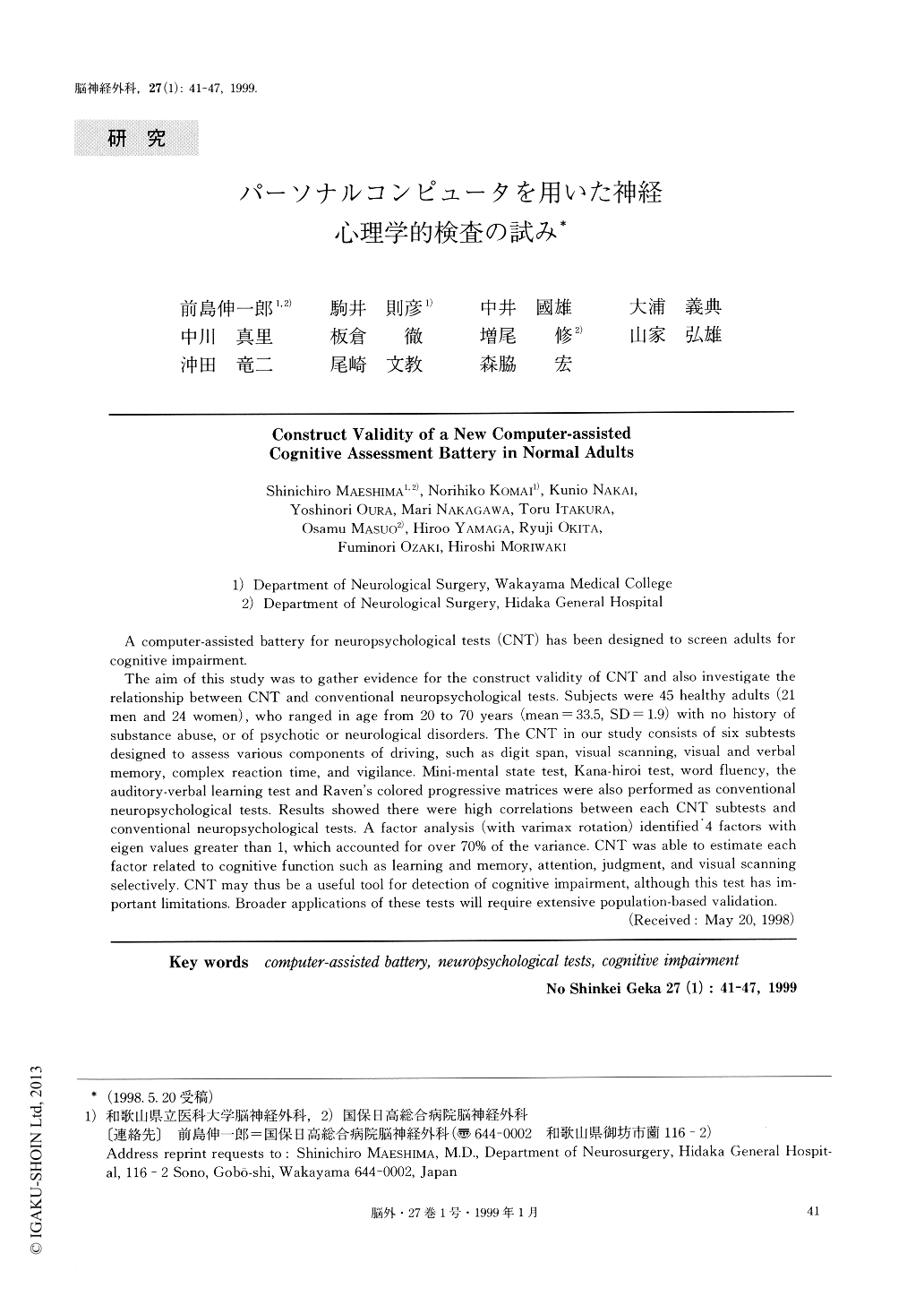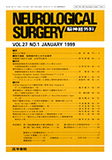Japanese
English
- 有料閲覧
- Abstract 文献概要
- 1ページ目 Look Inside
I.はじめに
高齢化社会を迎え,痴呆性老人の増加が社会問題となりつつある.痴呆性疾患の早期発見,診断には神経心理学的検査が不可欠であるが,検査には時間を要し,また専門的な手続きを要するため,日常の臨床では敬遠されがちである.
近年,欧米ではパーソナルコンピュータを用いた神経心理学的検査の試みがなされている1,3,6,11,12,16)が,本邦での報告はきわめて少ない14).また,コンピュータを用いた神経心理学的検査が,従来の神経心理学的検査の成績を反映しうるものかどうかも明らかではない.
A computer-assisted battery for neuropsychological tests (CNT) has been designed to screen adults forcognitive impairment.
The aim of this study was to gather evidence for the construct validity of CNT and also investigate therelationship between CNT and conventional neuropsychological tests. Subjects were 45 healthy adults (21men and 24 women), who ranged in age from 20 to 70 years (mean=33.5, SD=1.9) with no history ofsubstance abuse, or of psychotic or neurological disorders. The CNT in our study consists of six subtestsdesigned to assess various components of driving, such as digit span, visual scanning, visual and verbalmemory, complex reaction time, and vigilance. Mini-mental state test, Kana-hiroi test, word fluency, theauditory-verbal learning test and Raven's colored progressive matrices were also performed as conventionalneuropsychological tests. Results showed there were high correlations between each CNT subtests andconventional neuropsychological tests. A factor analysis (with varimax rotation) identified 4 factors witheigen values greater than 1, which accounted for over 70% of the variance. CNT was able to estimate eachfactor related to cognitive function such as learning and memory, attention, judgment, and visual scanningselectively. CNT may thus be a useful tool for detection of cognitive impairment, although this test has im-portant limitations. Broader applications of these tests will require extensive population-based validation.

Copyright © 1999, Igaku-Shoin Ltd. All rights reserved.


